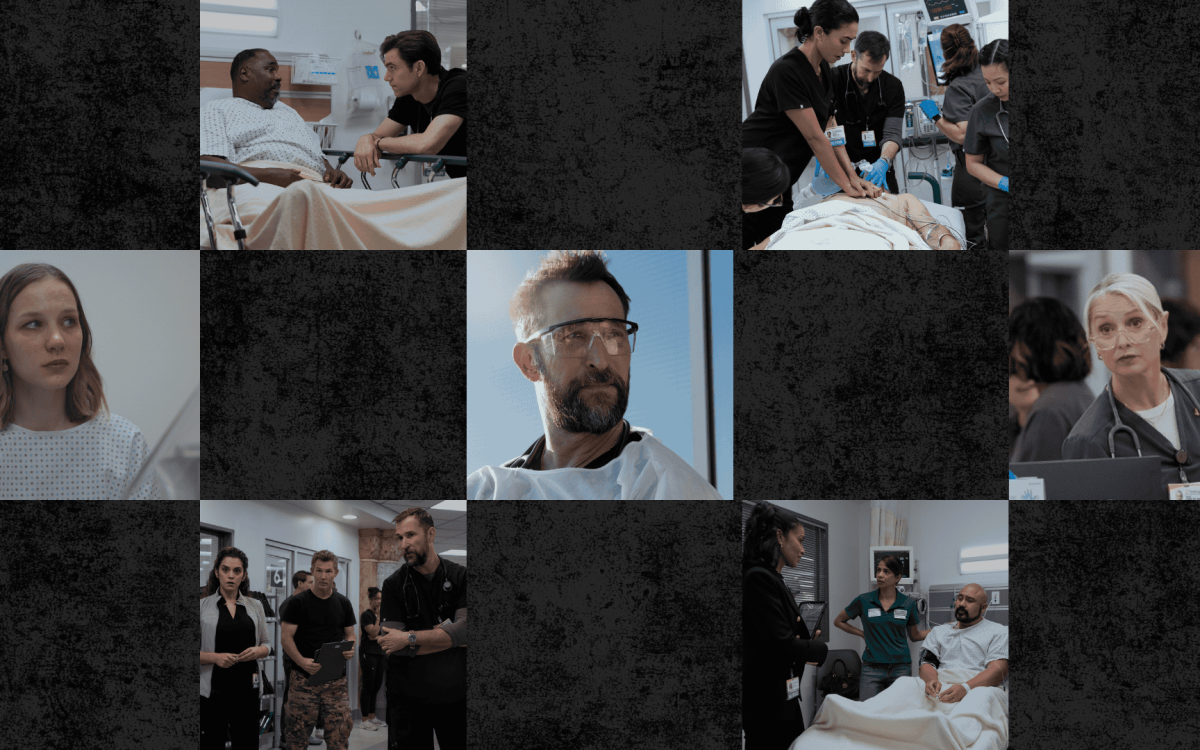Satcher’s goal: To help ‘people who have been left out’
Public health advocate, author, and teacher David Satcher — the 16th U.S. surgeon general and a recent visitor to Harvard — grew up poor on a red-dirt farm outside Anniston, Ala.
Two of his nine siblings died in childhood. As a boy, Satcher almost died too, when he was stricken with whooping cough and then pneumonia.
The hospital in Anniston only cared for white people. What saved Satcher were the ministrations of his parents and the intercession of the only black doctor around.
“By the time I was 6,” he told a March 13 audience at the Harvard School of Public Health (HSPH), “I was telling everybody I was going to be a doctor like Dr. Jackson.”
The brush with death left Satcher with “a driving force in his life,” he said — “access to health care for people who have been left out.”
Satcher, co-author of “Multicultural Medicine and Health Disparities” (McGraw-Hill, 2006), was in Boston to deliver the fourth in a 2007-08 series of lectures in Public Health Practice and Leadership sponsored by the HSPH’s Division of Health Practice.
The former surgeon general, who served during the Clinton administration, is now director of the Satcher Health Leadership Institute at Morehouse School of Medicine in Atlanta.
HSPH Dean Barry R. Bloom introduced Satcher as “a man with universal admiration and respect” — a surgeon general who took “enormous political heat” for some of his positions.
One was to promote sexual health in school curricula — “teaching sex education in schools, that hugely radical concept,” said Bloom with a touch of irony.
In 2001, Satcher’s office released “The Call to Action to Promote Sexual Health and Responsible Sexual Behavior.” It was praised by the American Academy of Family Physicians as a long overdue “paradigm shift” for health education — and it was slammed by conservative groups for promoting condom use.
HSPH postdoctoral fellow Mary Townsend introduced Satcher to the audience of 200, which spilled over into a second auditorium at the Kresge Building. She noted that his four-year term produced 14 major reports — more than any other surgeon general. The reports included detailed outlines of research and action on oral health, tobacco use among minorities, obesity, youth violence, and mental health.
As a public health policy leader today, said Townsend, Satcher is “poised to affect health policy on a global and national scale.”
In the audience at Kresge G-1 was the 13th U.S. surgeon general, Julius B. Richmond, who is currently the Professor of Health Policy Emeritus and John D. MacArthur Professor of Health Policy and Management at the Harvard Kennedy School of Government.
As for leadership, “beginnings are important,” said Satcher, in a tribute to the faith and attentive tenderness of his uneducated parents. “Much of my career has been defined by my beginnings.”
His own near-death gave him a passion for justice. So did a young Martin Luther King Jr., whose sermons at Ebenezer Baptist Church in Atlanta inspired Satcher and his classmates at nearby Morehouse College.
The stark lessons of his Alabama boyhood and the world-shifting drama of the Civil Rights movement were both important beginnings, he said. “I came out of that with a passion to change things, and the optimism that things can be changed.”
Other lessons in leadership came into focus over the years for the future surgeon general. He became director of the Centers for Disease Control and Prevention, but as a young doctor once ran a free clinic in the riot-torn Watts section of Los Angeles. He taught medicine and epidemiology, and in 1982 took over leadership of a beleaguered Meharry Medical College in Nashville, Tenn., which had been educating black doctors and dentists since 1876.
“Leadership is really a team sport,” said Satcher, a believer in cooperative leadership teams — ones that share a vision of an institution’s mission and a sense of its history.
Leadership also demands a constant interrogation of an institution’s problems. The operative question, said Satcher, is “Where are we?”
Public health offers an analogy, he said. “We start with surveillance,” the necessary first step in assessing the nature, source, and scale of a problem before setting out to solve it.
Having the right information is at the root of something else any leader needs, said Satcher — “informed passion.”
To influence policy in the political world, a leader in public medicine needs to have a grasp of the best science. Or, as Satcher said, “First, be credible.”
Then there’s the need to communicate that informed passion — in either a low-key, noncharismatic way, he said, or in a way a friend of his once did.
Martin Luther King Jr., said Satcher, could “educate, motivate, and mobilize people like no one I’ve ever seen.”
Satcher has a dream too — to eliminate the disparities in health care that are evident worldwide because of racial, ethnic, and cultural differences. The “social determinants” of health care, he said, mean that “people have different access to ways to be healthy.”
Drug development is just one sign of global health disparities, said Satcher. In the past two decades, 90 percent of the drugs getting to the marketplace were designed to address the health issues of just 20 percent of the world’s people — those with the most money.
In addition, a brain drain is depleting the health resources of developing countries, where health practitioners educated in the West — even if they went back to their native countries — “couldn’t function or apply what they’ve learned,” said Satcher.
He is on the board of a National Academy of Sciences initiative designed to bring to African nations the academy model of independent, science-based advice on health issues.
Together, health disparities, lack of access to drugs, and medical brain drain signal a pressing international need for coordination, dialogue, and leadership, said Satcher. “We need to start talking about global health.”0




